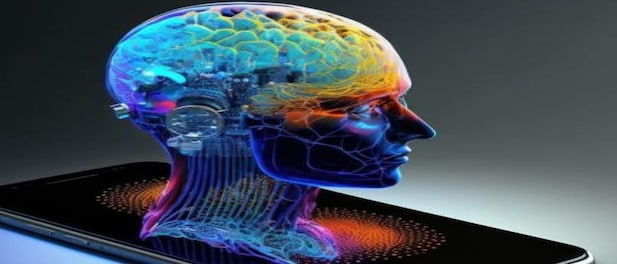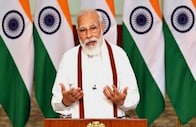AI has been making inroads in many aspects of our life with OTT apps that prompt us to watch a particular film or a smartwatch asking us to slow down when our heart rate rises when running. Now, the development of AI systems like GPT is leading to significant changes in the realm of creativity across writing, art, music, and problem-solving.
The importance of creativity to human endeavour can be gauged from what Albert Einstein said – “I never made one of my discoveries through the process of rational thinking”. Creativity has been an essential characteristic of human thought and progresses over the centuries. The ability to create and tell stories defines human behaviour giving us the ability to think imaginatively, generate unique ideas, and identify original solutions to age-old problems. Today, however, this human domain is being intruded on by Artificial Intelligence (AI) with the emergence of large language models and generative pre-trained transformers such as GPT-4.
The last few years have seen AI making inroads in many aspects of our life with OTT apps that prompt us to watch a particular film or a smartwatch asking us to slow down when our heart rate rises when running. Now, the development of AI systems like GPT is leading to significant changes in the realm of creativity across writing, art, music, and problem-solving. While the jury is still out on whether the consequences of our creativity will be positive or negative, let us look at the possible ramifications.
Also Read: Indian engineers to be impacted the most with the surge of tools like ChatGPT and GitHub Copilot
On the positive side, AI systems can help to augment our creative capabilities. By leveraging advanced algorithms, these systems can generate content that can form a base to work on and provide new perspectives on a topic. It can act as a creative collaborator, expanding a creator’s range of ideas beyond the limits of their imagination to produce innovative content. It can enable creators to focus on their strengths and interests, delegating certain tasks to the AI, which can help maximise productivity and efficiency. It can free humans to concentrate on more complex and creative tasks.
Just as smartphones democratised photography and video-sharing platforms gave everyone the tools to become an influencer, AI-powered tools like GPT have the potential to democratise creativity by making it more accessible to individuals who may not possess traditional artistic skills. For instance, someone with limited writing ability can use AI-based writing assistants to craft coherent, engaging, and well-structured texts. Similarly, AI-generated music tools can help individuals compose
original songs, even if they lack formal musical training. By lowering the barriers to entry, AI will empower a broader range of people to participate in creative endeavours and express themselves artistically.
They say, without creativity, we'll stagnate, but humans themselves are catalysts to such potential threats, how do we navigate?
One primary concern is the potential devaluation of human-made art and creative works. As AI-generated content becomes more prevalent, there is a risk that it may diminish the appreciation for human skill, craftsmanship, and artistic expression. The ease with which GPT can generate responses may result in a decline in human inventiveness. An overreliance on AI-generated content could result in reduced critical thinking, as creators may become complacent and less inclined to challenge conventional wisdom and explore alternative perspectives. Individuals may also be discouraged from pursuing creative careers, as they may feel overshadowed or threatened by AI-generated creations.
Moreover, the widespread use of AI in creative fields may lead to the end of individual expression with the homogenisation of artistic styles and expressions. As AI algorithms are designed to optimise and replicate patterns found in existing works, there is a risk that they may perpetuate prevailing trends leading to original and groundbreaking ideas being stifled. The other aspect is the ethical questions on using computers to provide content with intellectual property, bias, and the undervaluing of human creativity and knowledge remaining areas of concern.
However, it is perhaps unlikely that a core trait of humans such as creativity will be lost. An AI language model may not be able to completely replace human creativity. Firstly, because it depends on existing data rather than human ingenuity and intuition, it may lack distinctive qualities. Secondly, the range of thoughts and expressions may be confined by repetition and formulaic content as a result of its reliance on patterns and data.
The growing popularity of GPT and similar AI-powered tools however are getting viewed differently. It is equally important, and critical rather for us to educate the world on how to use GPT as a supplement to the primary thinking tool. One of the easiest routes to educate children and even adults about such AI-powered tools or the automotive future that lies ahead is through school and college curriculums.
Explaining the practicalities of these tools at length will allow them to make rational usage decisions without actually relying on them 100% for results. Similar initiatives can be introduced by global corporates as a part of their L&D programs to allow professionals to make the optimum use of these tools to derive innovative business results. We agree that GPT or any other similar tools offer a variety of features that can literally help us decode complex problems and weave innovative solutions to support operations at every level, and that’s what the purpose of automation is; not to eliminate human intervention but to co-exist.
To harness the potential of AI for human creativity while mitigating its negative consequences, it is crucial to strike a balance between human and AI-generated content. Emphasising the importance of human insight, intuition, and emotion in the creative process is key to maintaining the uniqueness and authenticity of artistic expressions. As we celebrate World Creativity and Innovation Day, let us blend the capabilities of AI systems like GPT with human creativity to usher in a new era of innovation, inspiration, and artistic achievement.
— The author, Mayank Kumar, is Co-founder and MD, upGrad. The views expressed are personal.
(Edited by : C H Unnikrishnan)
First Published: Apr 21, 2023 1:52 PM IST
Check out our in-depth Market Coverage, Business News & get real-time Stock Market Updates on CNBC-TV18. Also, Watch our channels CNBC-TV18, CNBC Awaaz and CNBC Bajar Live on-the-go!







